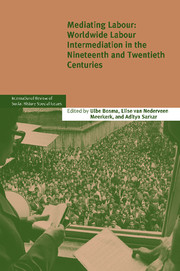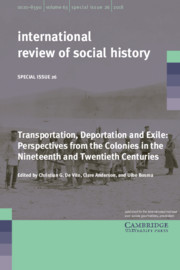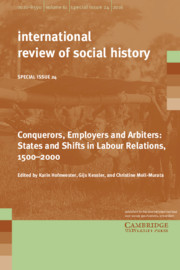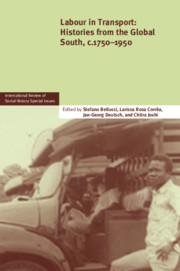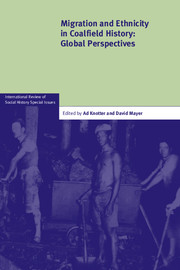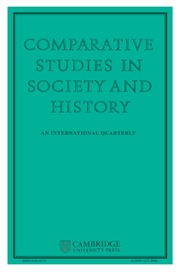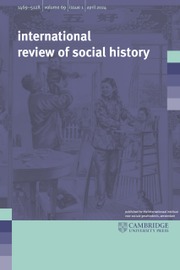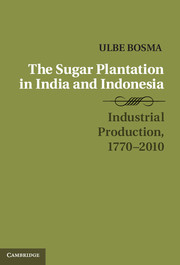Mediating Labour
The essays in this volume aim to explain the evolution and persistence of various practices of indirect labour recruitment. Labour intermediation is understood as a global phenomenon, present for many centuries in most countries of the world and taking on a wide range of forms: varying from outright trafficking to job placement in the context of national employment policies. The contributions cover a broad geographical scope, including case studies from Africa, Latin America, Southeast Asia and Europe. By focusing on the actual practices of different types of labour mediators in various regions of the world during the nineteenth and twentieth centuries, and by highlighting both the national as well as the international and translocal contexts of these practices, this volume intends to further a historically informed global perspective on the subject.
- Geographically broad, including case studies from Africa, Latin America, Southeast Asia and Europe
Product details
February 2013Paperback
9781107647374
262 pages
227 × 152 × 11 mm
0.38kg
Available
Table of Contents
- 1. Mediating labour: an introduction Ulbe Bosma, Elise van Nederveen Meerkerk and Aditya Sarkar
- 2. The 'bargain' of collaboration: African intermediaries, indirect recruitment, and indigenous institutions in the Ghanaian gold mining industry, 1900–6 Cassandra Mark
- 3. Clandestine recruitment networks in the Bight of Biafra: Fernando Pó's answer to the labour question, 1926–45 Enrique Martino
- 4. Making and breaking the working class: worker recruitment in the national textile industry in interwar Egypt Hanan Hammad
- 5. The League of Nations and the moral recruitment of women Magaly Rodríguez García
- 6. South American tours: work relations in the entertainment market in South America Cristiana Schettini
- 7. The making of public labour intermediation: job search, job placement, and the state in Europe, 1880–1940 Sigrid Wadauer, Thomas Buchner and Alexander Mejstrik
- 8. Temporary labour migration and state-run recruitment of foreign workers in Europe, 1919–75: a new migration regime? Christoph Rass
- 9. Labour brokers in migration: understanding historical and contemporary transnational migration regimes in Malaya/Malaysia Amarjit Kaur.

